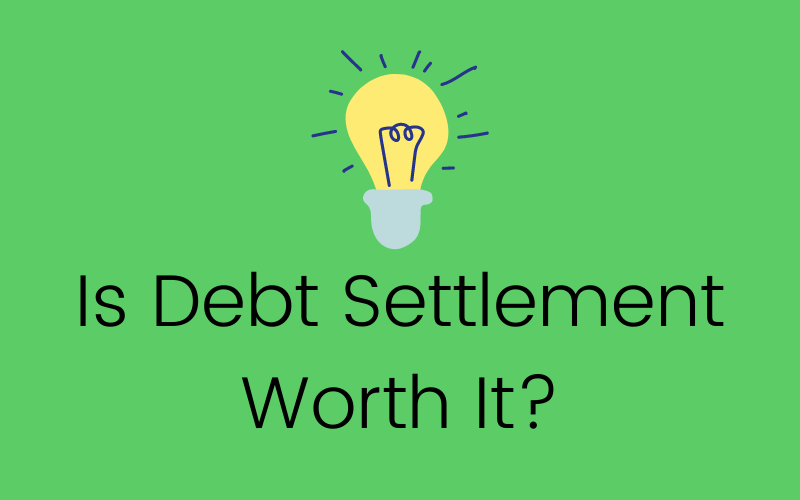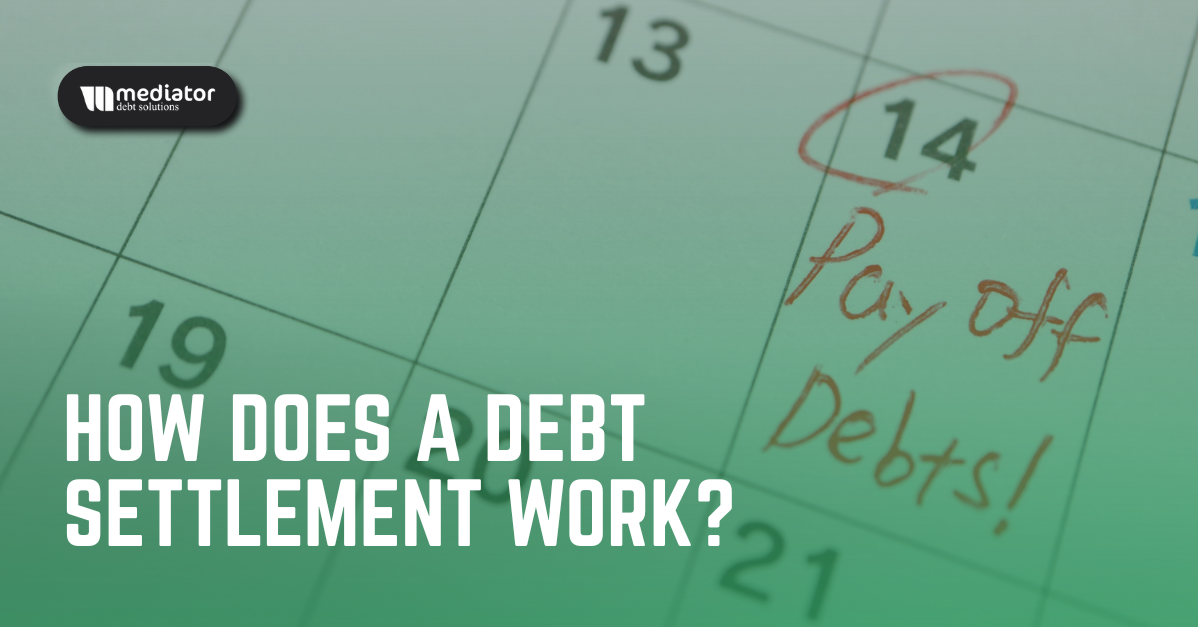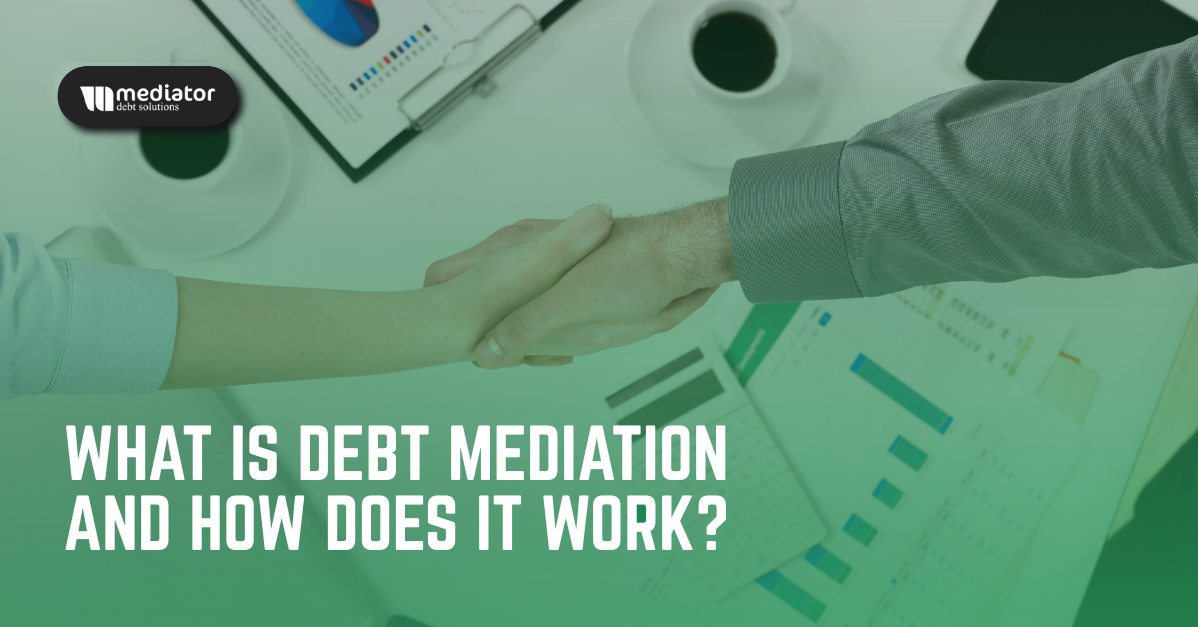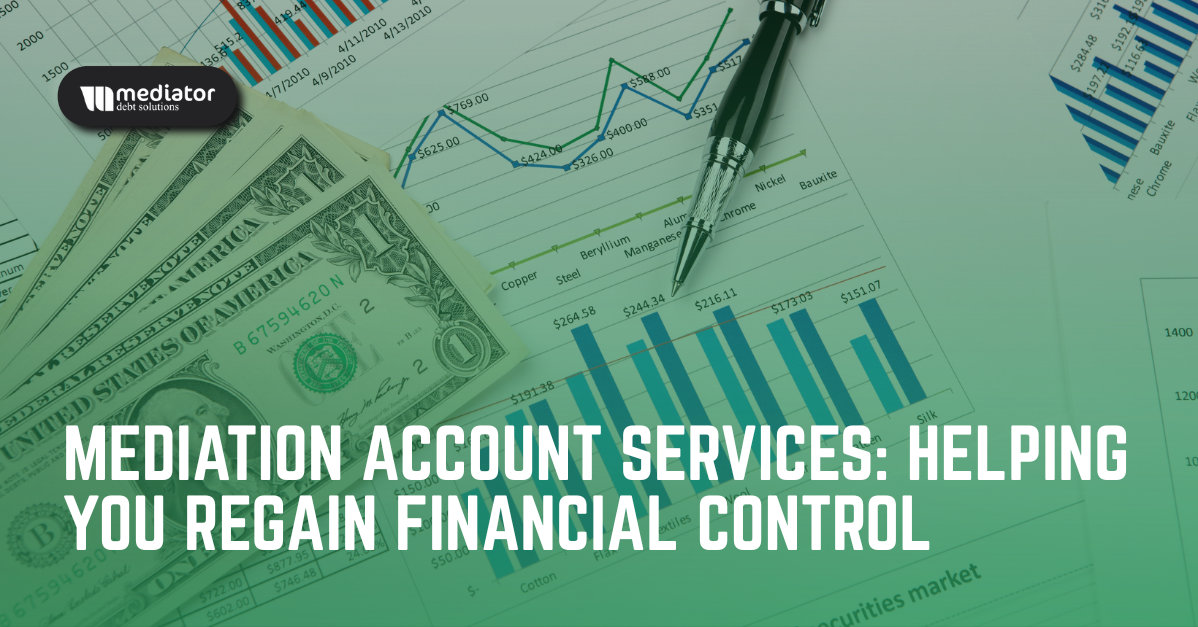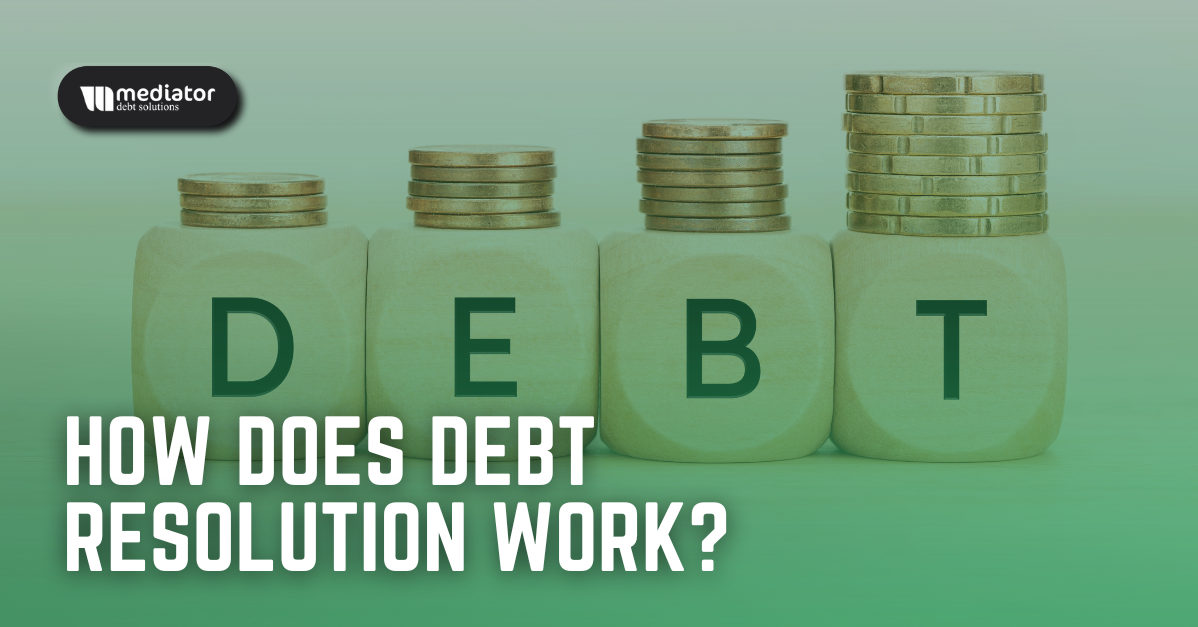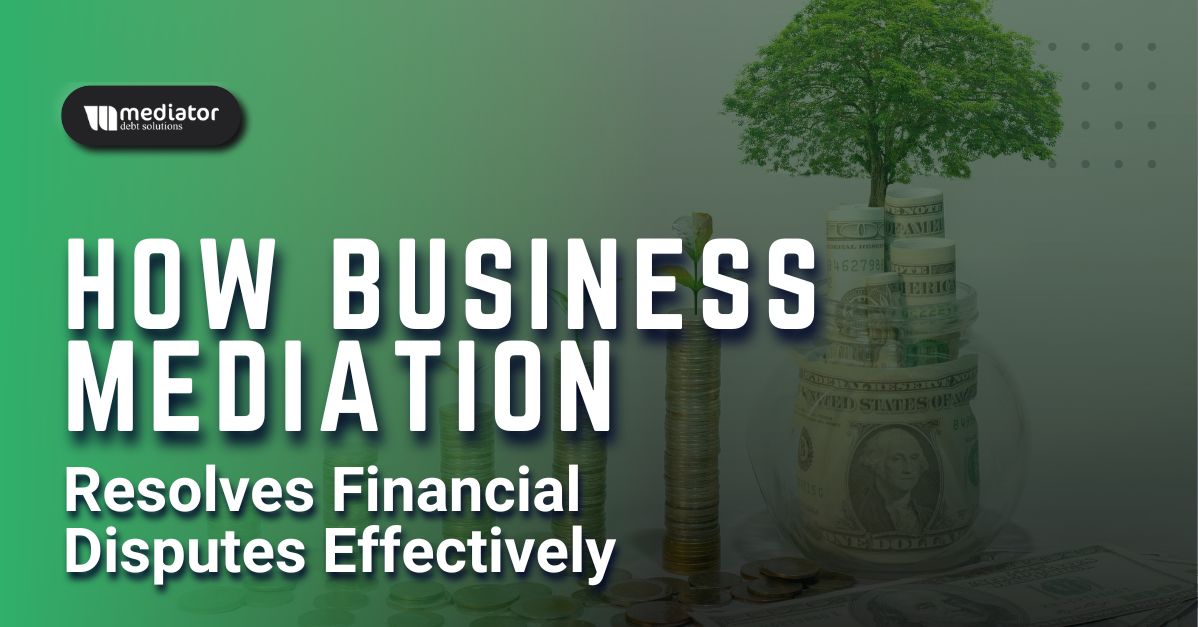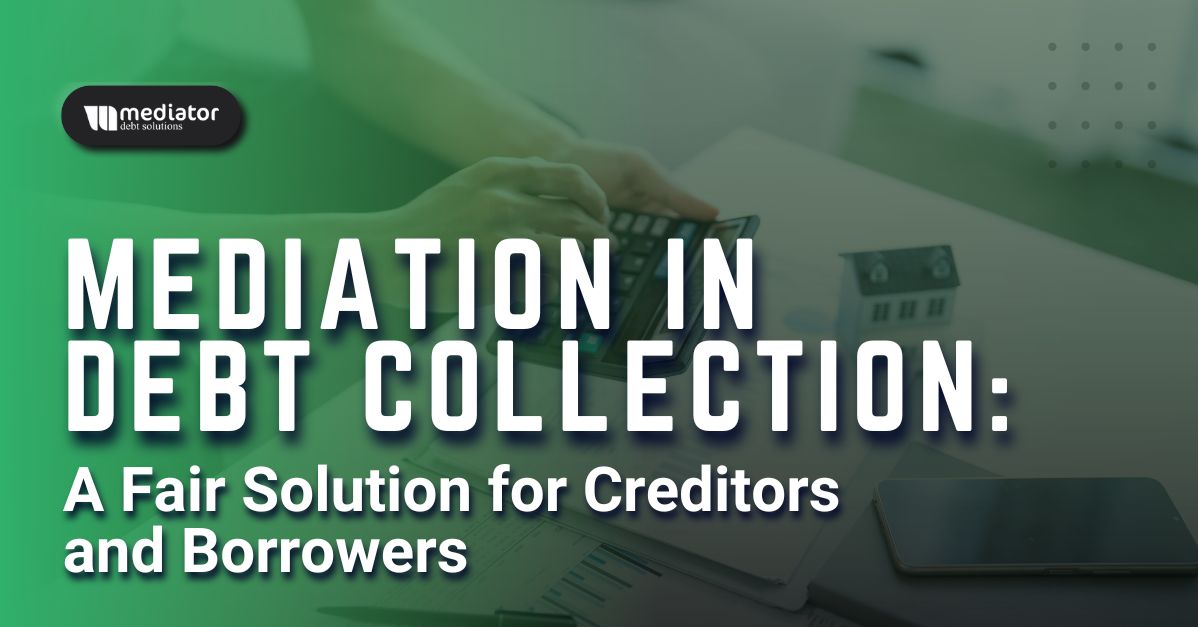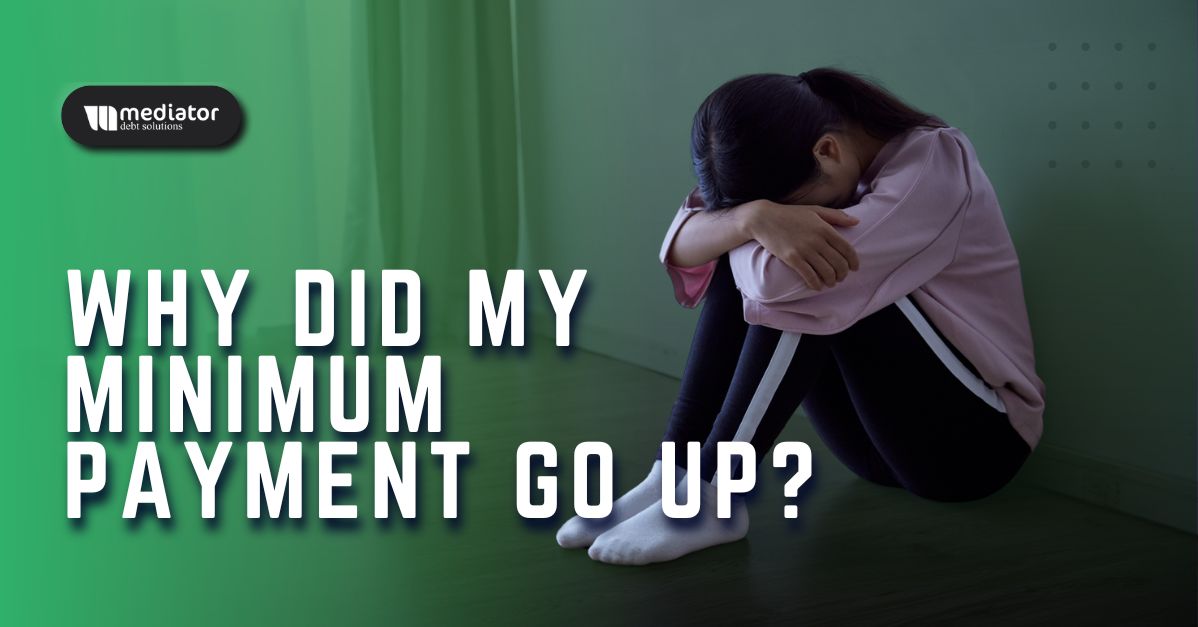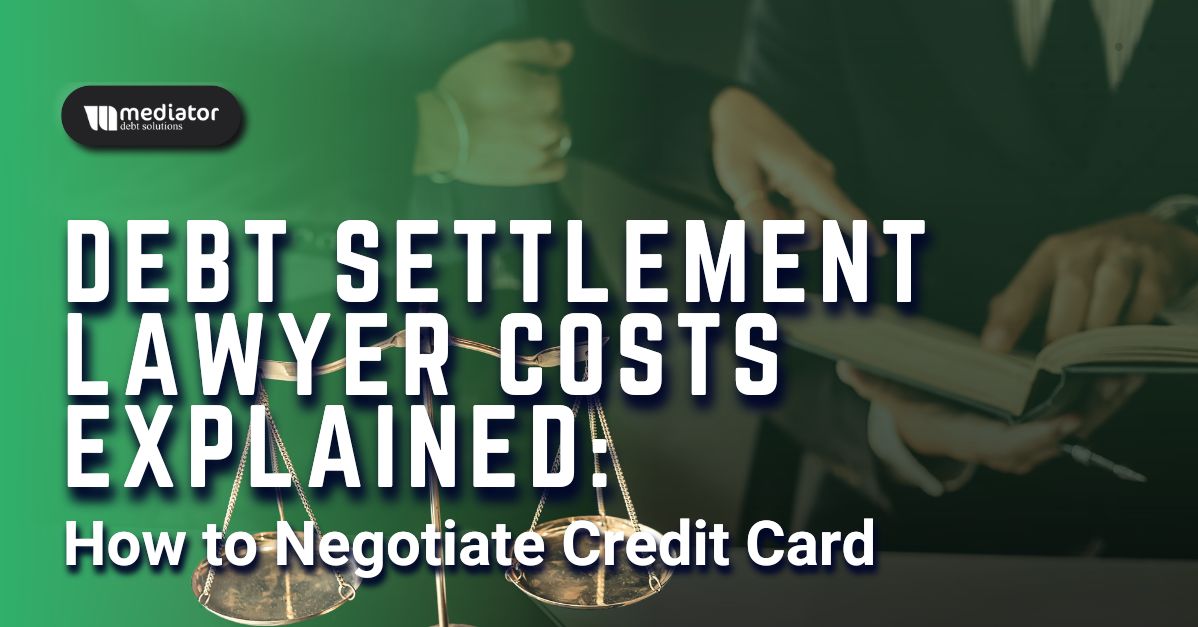When you have missed debt payments, you might be wondering if debt settlement is the best option. Depending on which technique you take, it may or may not be a viable alternative: working with a third-party debt settlement firm or negotiating with your creditors on your own.
Consumers who want to get out of their debts with little or no effort should reconsider because debt settlement companies may be a costly, unpleasant alternative. On the other hand, a DIY settlement strategy might succeed, but it might be difficult to execute.
Continue reading to discover what you should know before working with a debt settlement firm and this way you’ll know if debt settlement is worth it or not.
What is Debt Settlement?
Debt settlement is a way for people in debt to get out of debt immediately. Debt settlement can reduce debts by 50-60 percent, with the negotiations handled directly by debt reduction firms to assist clients to save money.
Debt settlement is when a debt liquidates for less than what you owe. This happens when you reach an agreement with your creditor(s) to pay them less than what you owe (but at least 70%).
How Does Debt Settlement Work?
The difference between handling debt settlement on your own and working with a debt settlement company is stark. When you engage with a debt settlement company, here’s how it works.
1. Research debt settlement companies before you decide to work with one. There are several genuine debt settlement businesses in the United States. Most states require them to be licensed. Debt settlement firms are expected to follow industry standards that aim to protect customers and their money.
2. Be careful. If a debt settlement firm claims that it can deliver certain outcomes, be careful. They can’t promise that a lender will accept a debt settlement. During your search, look up the Better Business Bureau, your state attorney general’s office, and consumer protection authorities like the federal Consumer Financial Protection Bureau to see if there are any complaints about them.
3. Review all of your finances. Before your debt is completely resolved, some debt settlement firms typically demand that you deposit money into dedicated savings account for up to 24 months. These payments go toward the overall lump-sum settlement of your debt. You may find it difficult to keep up with these payments in some instances.
As a result, before any of your debt is paid off, you could back out of the settlement agreement. To avoid this scenario, examine your budget to see if you’ll be able to make debt repayments for at least 24 months.
4. Ask about the plan. Debt settlement can take anywhere from a few months to two years. You may be charged interest and costs by the lender during this time, as well as fees by the debt settlement firm. Why might you be charged with interest and expenses by a creditor?
While working with a debt settlement firm, many consumers are advised to cease paying their creditor and instead divert that money to a designated savings account. If you’ve stopped making payments to your lender, you might get contacted by debt collectors or sued.
5. Select a company that helps people with debt. It’s time to choose a debt settlement firm based on your study if you’re well-versed on the risks and ready to proceed with debt reduction.
Debt settlement works best when other debt-relief methods, such as bankruptcy, are not viable or appropriate for your situation. Each debtor’s debt settlement program is created specifically for them based on variables like existing debt amount, monthly budget, and credit score. The agreed payment plan with creditors then begins after this data has been acquired.
Debt Settlement vs. Debt Consolidation: Which One Is Worth It?
When it comes to debt consolidation and debt settlement, you need to understand how they operate before making a decision. You may combine all of your debts into one monthly payment through debt consolidation.
Debt settlement entails paying a lower amount of money upfront and receiving a greater monthly payment in exchange for having your debt significantly reduced. The benefit of this option is that it may help you pay off your debts more quickly, but it generally has a higher interest rate than debt reduction.
Debt reduction takes longer to work, but you can expect large debt reduction and lower interest rates as a result.
Debt Settlement Vs. Bankruptcy
Debt settlement is a debt relief technique that can be beneficial to individuals who have debts that will not or cannot drop over time. Bankruptcy, on the other hand, maybe helpful for consumers with severe debt loads who risk losing their homes or automobiles.
Although bankruptcy is an option, it isn’t always the ideal debt relief solution. It comes with stringent standards and long-term effects on credit scores and other financial factors.
Does Debt Settlement Affect My Credit Score?
Your debt settlement program is an agreement between you and your creditors, so debt settlement shouldn’t affect your credit score in the long term. That being said, debt settlement companies typically report to major credit bureaus to prove that debtors are acting in good faith to repay what they owe. This action may temporarily lower your debt-to-credit ratio, which could result in a temporary drop in your credit score.
Once debt settlement has been completed successfully though, you’ll see an increase in credit score since the debt amount is now lower than what was originally owed.
Do I Qualify For Debt Settlement?
It’s critical to find out whether you’re qualified before deciding if debt negotiation is suitable for you. Because requirements differ from business to business, not all clients are eligible for debt settlement.
It’s also possible to take a look at your circumstances and analyze how they might affect debt settlement. Some debts must be reduced to an amount that may be worked out, while others require a debt amount greater than a certain minimum.
Furthermore, debt negotiation is not available to people who are currently or have had legal action filed against them in the last seven years or who have declared bankruptcy in the past seven years.
How Long Does the Debt Settlement Process Take?
It may take anything from three to five years to finish debt settlement if you pick this option. During the period, debt settlement works best for people who are able and willing to make regular monthly payments.
This will not only save you money but will also improve your chances of being accepted for debt settlement offers.
What Kind Of Debts Can I Settle?
Debt settlement enables consumers to renegotiate their debts with credit cards, medical bills, personal loans, and even back taxes. To negotiate a better deal with creditors, debtors must typically owe more than $7,000 in outstanding debt.
Benefits of Debt Settlement
– Reduce your debt by 50-60%
– With Creditor Approval, The Monthly Payments Will be Shorter
– Reduce Interest and Late Payments
– Make a monthly budget that works for you.
– Save Hundreds to Thousands of Dollars in Interest
– Improve Your Credit Score
What Next?
Debt settlement may be a good fit for individuals who are facing bankruptcy, particularly if they have debt. Check out no-cost debt settlement methods to see how debt settlement works and which firms would be ideal for your circumstances.
Keep in mind that if the agreed payment plan fails or becomes unmanageable, debt consolidation can lead to debt settlement.
If you’ve tried to get a loan and still haven’t been approved, it’s time to seek credit counseling. However, remember that debt management may not always provide savings or improve your credit score. Your choice should take into account your financial concerns as well as how quickly you want to reduce debt levels.
What Are the Drawbacks of Debt Settlement?
Before deciding on a debt settlement business, it’s important to think about a few factors. Debt settlement generally requires an upfront fee (though you’ll still profit because interest is avoided), whereas debt consolidation does not.
The majority of us can’t use debt settlement since it demands that debtors be able to pay off their creditors. Finally, when it comes to individuals looking for long-term debt reduction, lump-sum payments are generally offered at the end of negotiations with creditors.
Debt settlement is a popular debt relief technique because it may significantly reduce debt while avoiding long-term damage to credit scores and other financial variables. Based on the requirements above, anybody dealing with significant debt might wish to explore their choices through a qualified debt relief firm.
Is Debt Settlement Worth It?
Debt settlement is beneficial to most debtors since it can substantially lower debts while maintaining financial stability and future access to loans and credit cards.
In the end, is debt settlement worth it? If you have a debt problem that is becoming too difficult to deal with on your own, debt settlement might be your only option. While debt consolidation has a quicker effect on debts reduction, debt negotiation offers advantages such as interest rate cuts and smaller monthly payments.
Overall, debt settlement allows consumers to manage their money responsibly while offering significant debt relief over time. Finding the appropriate firm that will collaborate with your creditors to produce plans that are suited for you is critical to use debt settlement without affecting your credit scores or other financial factors. Debt settlement is a viable option to consider, taking all debt-relief alternatives into account.

